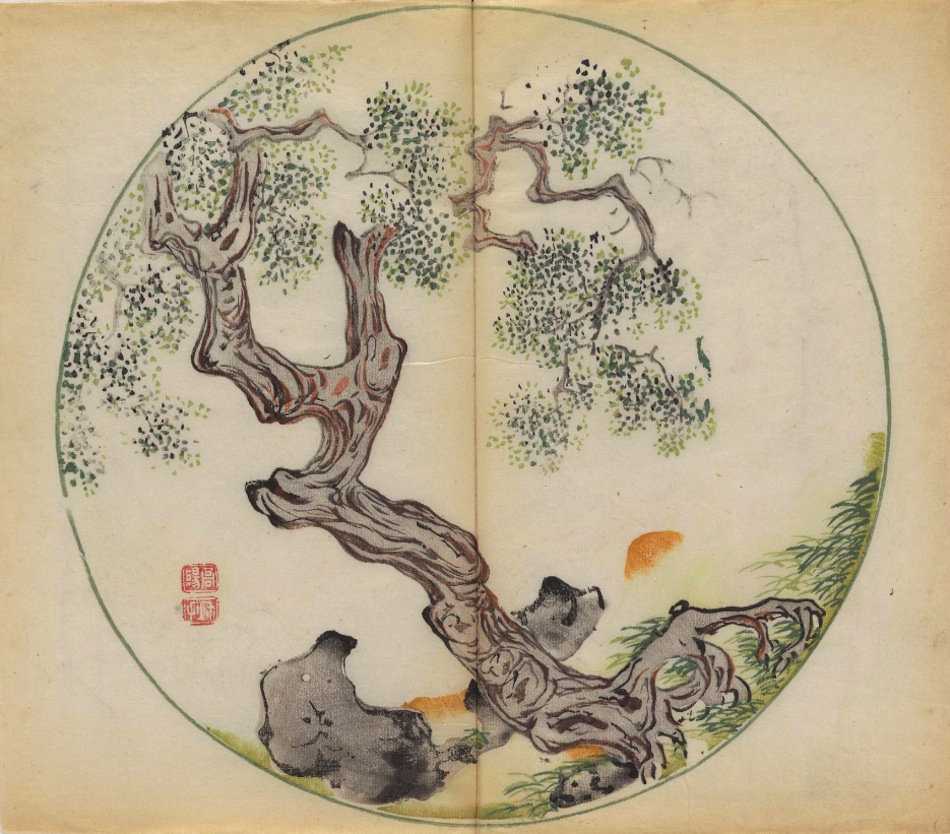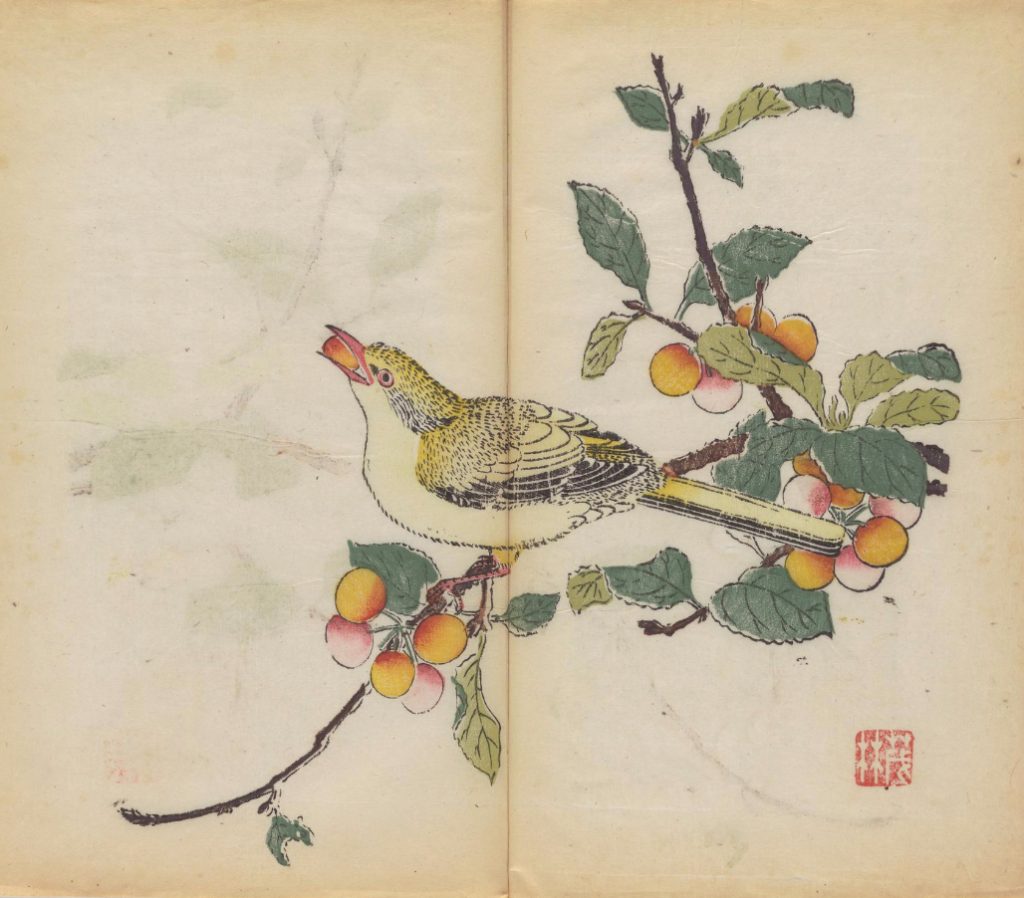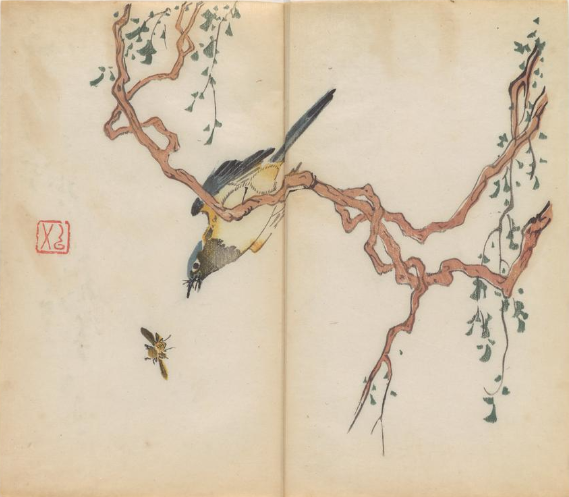Now free for the world to see on the Cambridge University Digital Library are some treasures from the library’s Chinese collections. Fire up that time machine called the Internet, and you can start perusing:
- The oracle bones (pieces of ox shoulder blades and turtle shells used for divination in ancient China) which importantly bear the earliest surviving examples of Chinese writing. They’re over three thousand years old.
- A digitization of one of the world’s earliest printed books (Mahapraj馻-paramita-sutra or Perfection of Wisdom), a Buddhist text dating between 1127 and 1175.
- A 14th-century banknote. According to Cambridge, “Paper currency first appeared in China during the 7th century, and was in wide circulation by the 11th century, 500 years before its first use in Europe.”
But what’s been burning up the Internet during the past few days (largely thanks to Hyperallergic) is the digitization of the Manual of Calligraphy and Painting.
Made in 1633 in Nanjing, the Manual of Calligraphy and Painting is noteworthy partly because “It is the earliest and finest example of multi-colour printing anywhere in the world, comprising 138 paintings and sketches with associated texts by fifty different artists and calligraphers.” And partly because “The binding is so fragile, and the manual so delicate, that until it was digitized, we have never been able to let anyone look through it or study it – despite its undoubted importance to scholars,” says Charles Aylmer, Head of the Chinese Department at Cambridge University Library.
Begin your digital tour of the 388-page Manual here (or see a few samples above) and be among the first to lay eyes on it.
via Hyperallergic/Book Patrol/Cambridge University Library
If you would like to sign up for Open Culture’s free email newsletter, please find it here. It’s a great way to see our new posts, all bundled in one email, each day.
If you would like to support the mission of Open Culture, consider making a donation to our site. It’s hard to rely 100% on ads, and your contributions will help us continue providing the best free cultural and educational materials to learners everywhere. You can contribute through PayPal, Patreon, and Venmo (@openculture). Thanks!





Beautiful.
Wanderful works of Art, thanks for sharing all.
Wow! Amazing works of art!